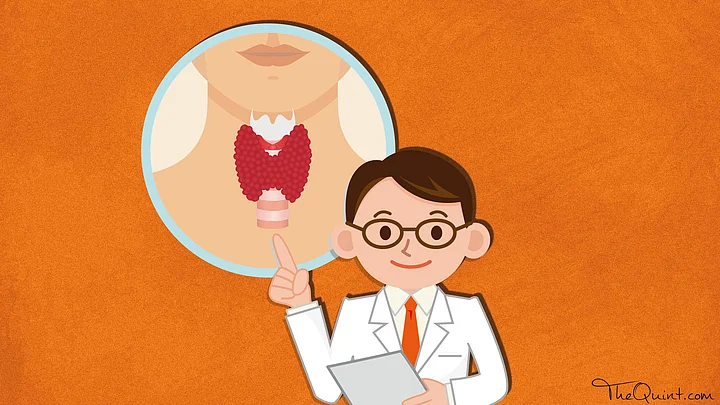It is incredible how a small, 5 cm gland in front of your neck can regulate your metabolism, body temperature, and play an important role in your overall development and growth.
Can you guess which gland are we talking about?
Yes, the thyroid. One of the most important glands of our body, it influences the functioning of major organs like heart, liver, kidneys, skin etc. It produces hormones, like triiodothyronine (T3), thyroxine (T4) and thyroid-stimulating hormone (TSH), which have an effect on almost every part of our body.
So all is hunky-dory till your thyroid gland is producing normal levels of hormones...
But like everything else, too much or too little of this wonderful hormone can be problematic!
An underactive thyroid gland, which produces less hormones, causes hypothyroidism. This might slow down many of your body’s functions like metabolism. The usual symptoms are constipation, muscle weakness, joint pain, hair loss etc.
Hypothyroidism can lead to menstrual irregularities, weight gain, low pulse rate, among other issues, in women.
On the other hand, excessive production of T3 and T4 hormone causes hyperthyroidism. You might experience insomnia, fatigue, appetite change, heat intolerance in the body etc.
Usually a TSH test measures the amount of thyroid-stimulating hormone present in the blood and gives a fair indication of whether the levels are within range or not.
What to Do If Your Thyroid Test Shows a Minor Imbalance?
As per the Indian Thyroid Society (ITS), thyroid imbalance goes undetected in one-third of the patients. But interestingly, many doctors say that every instance of a thyroid imbalance might not require a treatment.
Speaking to FIT, Dr Ambrish Mithal, Chairman & Head, Endocrinology & Diabetes Division, Medanta said:
Thyroid detection rates have improved a lot over the last few years. But most of the detected thyroid cases are subclinical in nature, meaning, they don’t really require any treatment.Dr Ambrish Mithal, Chairman & Head, Endocrinology & Diabetes Division.
Hypothyroidism is the most common of thyroid disorders. But data shows that among those diagnosed with hypothyroidism, 80% have a ‘subclinical’ version of the disorder. It often doesn’t require any treatment.
If your TSH test values are between 5 & 10, then you might not really need any treatment.Dr Ambrish Mithal
So does this mean that all those who have hypothyroidism can chill? Well, not really.
Who Should be Tested For Thyroid?
As per the Indian Thyroid Society (ITS), women are prone to develop thyroid related disorders three times more than men. Which is why it’s important that pregnant women and those who are planning to conceive must definitely be tested for hypothyroidism.
Untreated hypothyroidism in pregnant women can lead to serious implications on the health of the newborn babies. Studies suggest that thyroid plays a crucial role in a child’s physical and mental development.
It is important to test newborn babies for hypothyroidism since even minor deficiency can lead to mental retardation.Dr Ambrish Mithal
Pregnant women with hypothyroidism are usually advised to maintain their TSH values below 2.5 to ensure proper fetal development.
Not pregnant, but you still think you should get your thyroid tested? Sure.
Don’t Panic over Minor Symptoms
Symptoms like fatigue, weight gain and lethargy might not immediately point towards a thyroid disorder. Doctors believe that many such symptoms are misread and creates unnecessary panic in patients.
Fatigue, anxiety, tiredness are very non-specific symptoms, and often can be mistaken as symptoms for thyroid.Dr Ambrish Mithal
But if you still feel strongly about getting your thyroid imbalance treated, then consult your doctor on the severity. It might not be necessary to keep popping pills for a manageable imbalance.
(Have you subscribed to FIT’s newsletter yet? Click here and get health updates directly in your inbox.)
(At The Quint, we question everything. Play an active role in shaping our journalism by becoming a member today.)
